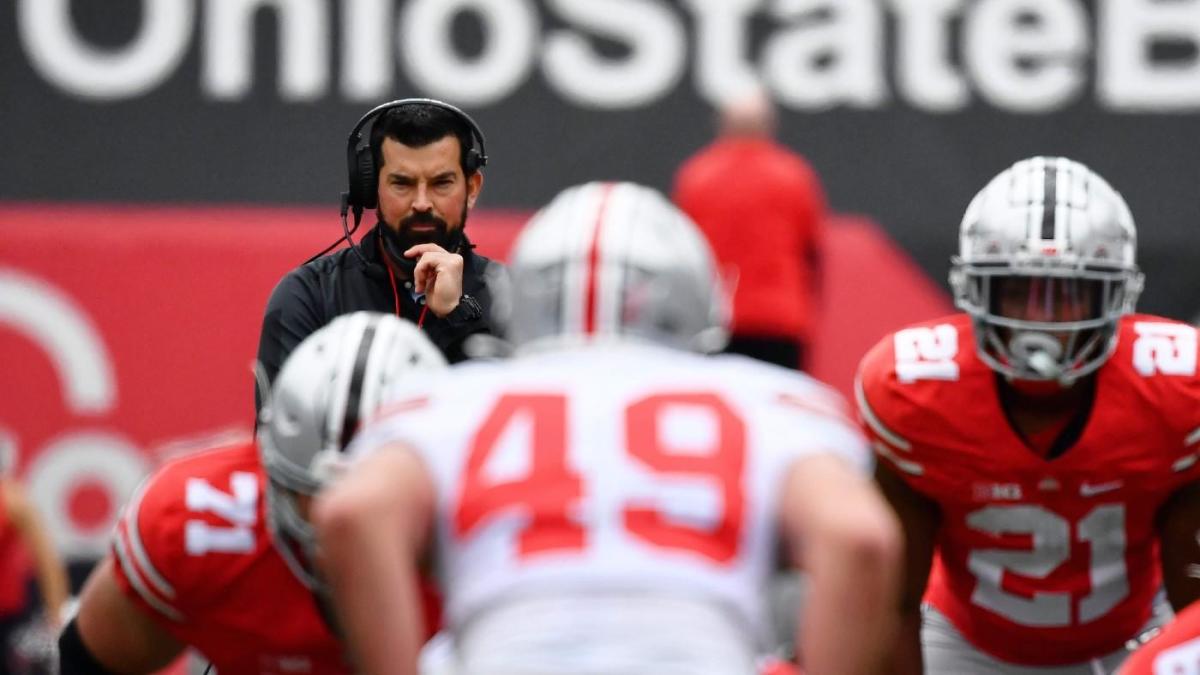Products You May Like

The 2021 college football spring practice season is wrapping up, and some significant changes could be coming to how coaches conduct practices once fall camp rolls around. Recommendations regarding how to conduct practices are expected to be forwarded by the NCAA’s Football Oversight Committee on Thursday, sources tell CBS Sports’ Dennis Dodd.
Those recommendations include the reduction of full-padded practices from 21 to eight, limiting each team to two full scrimmages and banning full-speed collision drills like the “Oklahoma Drill” in which two players fire off the line of scrimmage and hit each other while surrounding by a circle of teammates.
Legislation would formalize what has largely occurred organically in FBS football in the ongoing player-safety movement. Injury statistics have long proved most injuries — especially brain trauma — occur during practices. This comes on the heels of a five-year study that concluded half of the concussions suffered by players took place in preseason camp and nearly three-quarters of them happened outside of actual games.
“The data is the data,” West Virginia athletic director and FOC chair Shane Lyons said, according to Sports Illustrated, which first reported the forthcoming recommendations. “We’re going to have to make changes. We have to reduce the exposure that we’re having with concussions in the preseason practice time period.”
These changes, which have yet to be approved, have been in the works for a long time. Dodd reported in June 2019 that SEC coaches specifically discussed the future of the “Oklahoma Drill” after NFL coaches suggested that its teams stop using it in camp. Atlanta Falcons president and CEO Rich McKay, who also serves as the chair of the NFL’s competition committee, previously discussed said making that change would reduce injuries and send a message to the football world as a whole.
“What I liked the most about trying to eliminate some of these drills is hopefully the message it sends downstream to youth football, to high school football, to college football,” McKay said. “It will be their choice to see what they do with some of these drills.”
In 2016, the NCAA recommended only one full-padded practice per week during the season. In 2017, the CFL did away with all padded practices during the season. College coaches have found that “thud” practices — hitting but not tackling players to the ground — are effective and also reduce injury.
One issue involved in enforcing such new rules is that practices are largely conducted behind closed doors. When in-season practices are limited, skeptics will wonder whether teams are increasing hitting during the week of big rivalry games when the level of preparation is stepped up.
There is one more step to go before the new rules are enacted. The FOC will make a full presentation to the NCAA Division I Council on May 19. If approved, the rules are expected to be in place when teams hit the practice field in August.
